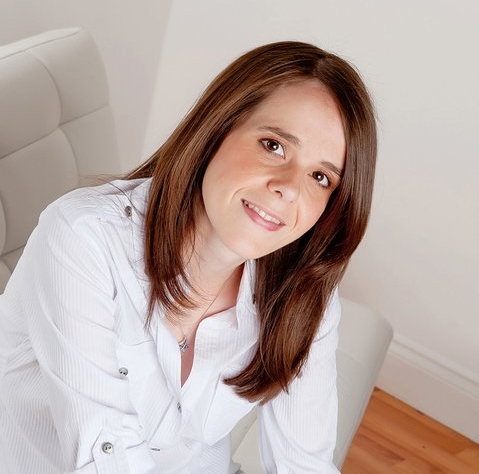Let’s Talk About It All – Why Secondaries Need To Embrace Classroom Discussion Of Difficult Topics

It's tempting to steer clear of controversial, sensitive topics in the classroom, says Dr Nicola Davies – but exploring them can leave young people more informed and empowered…

Mental illness, sexual abuse, abortion, self-harm, death and dying – these are just a few of the ‘sensitive’ and controversial issues teachers are increasingly being tasked with educating students about.
They are also topics that some educators might avoid for fear of students’ emotional reactions. Yet how can schools prepare teenagers for life beyond the classroom if they avoid real issues within the outside world? This was a key theme of one of the symposiums at this year’s British Psychological Society Annual Conference.
Beverley Playfair, a key worker from London, explains, “When it comes to sex and relationship lessons, most teachers don’t want to discuss such sensitive and sometimes embarrassing subjects with students whom they see every day. So schools often bring in an outside organisation, or they don’t bother discussing the subject at all.”
The cost of brushing these topics aside might turn out to be high, especially in the case of sexual abuse, grooming, and internet safety: “I think sweeping such subjects under the carpet is very damaging and doesn’t help victims and potential victims – but it does benefit the abuser if the issues remain taboo,” says Playfair.
Setting the stage
So how to tackle these topics head on? The first step is to assess the group to receive education in a particularly sensitive topic. Playfair says, “The best course of action prior to delivering a session would be to do a pre-assessment of the classes needs to find out if anyone will be affected personally.” This way it is possible to deliver targeted sessions that have been tailored to the particular needs of the group.
“It’s always a good idea to set ground rules or a group agreement before delivering sensitive subjects,” Playfair continues. “It’s important to point out confidentiality, making sure students know what it means and letting them know that, depending on the seriousness of disclosures made, there may be times that confidentiality needs to be broken for their safety and the safety of others.”
The class should also be made aware that the subject might affect them or someone close to them. If they wish to discuss something personal, it should be discussed at the end of a session, either with their teacher or school nurse. Another course of action would be to provide the contact details of the relevant organisation, should they wish to discuss the issue outside of the school environment.
Students need to be informed that any incident they wish to discuss, whether they have personally witnessed it or have heard about it, shouldn’t mention any names. Jeanie Beales, who teaches life orientation at a private girls’ school, shares her experiences: “I tell the children that this is a lesson; that no references should be made to anyone by name when discussing matters in sex education; and that should they need help, the school nurse or counsellor is available.”
With some topics, there is bound to be some embarrassment among students, resulting in disruptions or jokes. Playfair advises that, “It’s always good to do a whole group activity and then break the class down into smaller groups, so that individuals can feel more confident to talk about various subjects in their own circles. This also gives the facilitator a chance to answer more sensitive questions from individuals.
‘Always have ground rules that the class agrees to. That way, if anyone steps out of line you can refer to the rules, before you have to go to the extent of removing a child from the class for being disruptive.”
Tolerance and respect
Teaching sensitive topics is a great opportunity to teach tolerance and respect for difference. Tatjana Glogovac, English teacher at the Regional Center for Talents in Belgrade, Serbia, says, “Students come from different backgrounds and their attitudes towards, for example, different nationalities are mostly based on what they hear at home.So, if a student’s family is biased towards immigrants, it is very likely that the student will share this sentiment as well.”
Unless teachers try to spread awareness about these topics, the student might not get any other opportunity to question the beliefs they would otherwise take for granted.
Of course, teachers need to be delicate when introducing such topics, as the goal isn’t to challenge a student’s family values, no matter how erroneous teachers think they might be. Instead, the goal is to equip students with the tools to allow them to draw their own conclusions, with the teacher gently generating discussion by posing key questions.
In Jeanie Beales’ view, “I find that on topics of religion, it is important to maintain a detached and calm atmosphere as various religions and their beliefs are presented. This is a particularly important for Muslim students because they often feel like they are being persecuted in the media. We concentrate on the fundamental beliefs and not extremist groups for all religions.”
Critical thinking
School isn’t just about teaching students to reiterate well-rehearsed facts from books, but also developing their critical thinking skills. It could be argued that there is no better way to do this than by including topics which make even adults think twice. These topics don’t have a right or wrong answer – the truth is much more complex, and this should be conveyed to students. Many situations they will face in life won’t have one absolute right answer, so it’s important to prepare them for this.
The great thing about controversial, topic-based lessons is that they encourage students to acknowledge and examine a variety of perspectives whilst developing their own thoughts and opinions. By creating a safe atmosphere in the classroom, where dialogue and exchange of opinions is encouraged and appreciated, students have the opportunity to reflect on their own values, as well as to respect those of others.
Such classes give students the opportunity to openly express what they think and why, without the fear of being judged. Teachers can facilitate this further by adopting a specific ‘role’, as outlined in the ‘Teaching Controversial Issues’ entry in the Global Citizenship Guides series [PDF] produced by Oxfam.
Committed The teacher is free to state their own views, but with care so as not to bias student opinions.
Devil’s Advocate The teacher takes the opposing view of the students, ensuring that all viewpoints are covered before a consensus is reached.
Advocate The teacher presents all possible views before reaching their own conclusion, followed by an explanation. This highlights that before reaching any conclusions it is vital to examine all stances.
Impartial Chairperson The teacher ensures that all positions are represented, either via students’ statements or published sources. They act as a facilitator without voicing their personal position.
Declared Interest The teacher gives their own opinion, providing students with the opportunity to judge, and then gives an objective account of all possible attitudes.
Ideally, teachers should always strive to provide students with as many objective resources as possible in order to help them deepen their understanding of the complex issues within the world, without introducing bias from personal opinions. There is a thin line between presenting views and propagating them, however – a line that teachers might need to make a conscious effort not to cross.
Nicola Davies is a psychologist and freelance writer with a passion for education; for more information, visit her blog at healthpsychologyconsultancy.wordpress.com or follow @healthpsychuk












